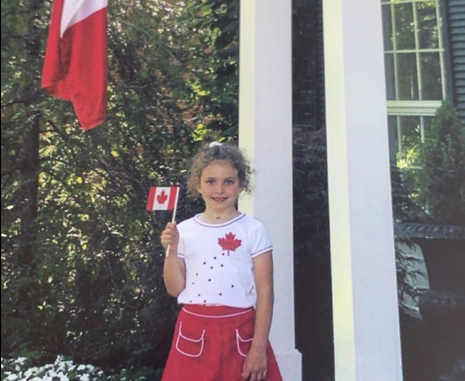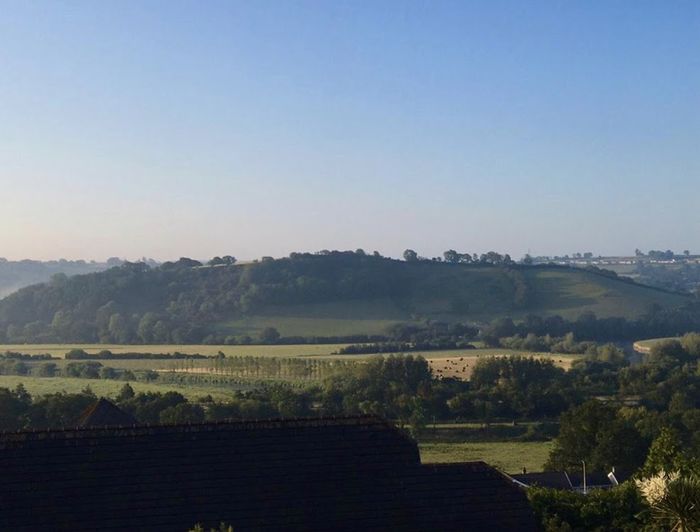What does it mean to be Canadian?
‘There is no way to quickly sum up Canadian culture when someone asks you in passing’: Quincy De Vries shares her experience of attempting to define her Canadian identity

For Canadians — those in Cambridge, or those living or travelling abroad — the assumption that we are American is, I’m certain, one that we have all become used to. This is not something I mind, but it has forced me to reflect. When I meet new people and am asked about the country’s culture, I struggle to come up with a cohesive answer that encompasses the Canadian experience. There are a few common things one tends to hear about Canadians: we are nice, we like poutine, we have free health care, and our country is very cold. These are not false, but surely there is more to Canada than that. But putting exactly what this is — what Canada really means to me — into words is much harder than I anticipated. Put simply, I have one question: what does it mean to be Canadian?
“Canada is unique in embracing the fact that none of us seem to know what being Canadian means”
In my search for an answer to this question, I turned to some well-known Canadian citizens. Surely, they must have a unanimous explanation. But, to my frustration, they all had different answers. Donald Sutherland spoke of Canada’s legacy in the Netherlands after World War Two; David Suzuki of Canada’s reaction to the Cold War; and Margaret Atwood to the beacon of light Canada represents to our southern neighbours. Even when speaking to friends and family I got a variety of answers. A few people said Tim Hortons, Canada’s coffee chain of choice. My friends mentioned that we love to say sorry to everyone no matter the situation. No one gave me the answer I was searching for. I was stumped.
Next, I turned to the leader of Canada, Prime Minister Justin Trudeau. I was sure he must have said something about the Canadian identity in the past. And I was correct – he had. But it was not at all what I was expecting. In his words, “there is no core identity, no mainstream in Canada.” These are the words of our leader. Can you imagine the head of any other nation saying anything like that? I certainly can’t. It is not that I disagree, but Canada is unique in embracing the fact that none of us seem to know what being Canadian means.
“Acknowledging the darker parts of our history is just as important as celebrating the good parts”
The history of the nation is another element that makes answering this question difficult. Canada has been both a French and English colony and now welcomes immigrants from all over the world. There are large Eastern European, Irish, and Chinese groups (among others) living in Canada who played and continue to play a central role in our history. Many of these minority groups have faced racism and prejudice at the hands of the ruling elite throughout our history and Canadians are still coming to terms with the horrible treatment of the indigenous peoples of Canada. Acknowledging the darker parts of our history is just as important as celebrating the good parts when reflecting on what it means to be Canadian.
The United States has a similar history in being a nation built by immigrants, but it doesn’t seem to suffer from the same identity crisis. I believe this is because Canada does not have a venerated national myth like America, and many other countries. We did not have a war for independence. The British Queen is still our head of state and adorns our money. There is an entire province, Quebec, that speaks a different language. Combined, these factors make it difficult to create a national ethos.
As I continued to ponder what it meant to be Canadian, I was struck by the simple fact that I was not going to find an answer. There is no way to quickly sum up Canadian culture when someone asks you in passing, but this is what makes the country special. We celebrate the fact that we are all different, that people come to Canada and can retain elements of their identity and become part of our community. Canada continues to highly encourage immigration: an average of 300,000 immigrants come to Canada each year and roughly 21.5% of our population are immigrants with permanent residency. Yes, we are polite and say sorry a lot, but this is not what defines us. We celebrate our differences and encourage new perspectives.
Canada is not perfect. We have a long way to go in many areas, especially when it comes to our treatment of indigenous peoples. But to be Canadian means to belong to a country that is united by our diversity. Next time someone asks me about being Canadian, I am not going to look for a simple answer. I have realised that I don’t want one.
 News / Cambridge academics sign open letter criticising research funding changes22 February 2026
News / Cambridge academics sign open letter criticising research funding changes22 February 2026 News / Student and union protesters hold ‘Trans Liberation Solidarity Rally’ 24 February 2026
News / Student and union protesters hold ‘Trans Liberation Solidarity Rally’ 24 February 2026 News / Union speakers condemn ‘hateful’ Katie Hopkins speech14 February 2026
News / Union speakers condemn ‘hateful’ Katie Hopkins speech14 February 2026 Features / Beyond the porters’ lodge: is life better outside college?24 February 2026
Features / Beyond the porters’ lodge: is life better outside college?24 February 2026 Theatre / Footlights Spring Revue? Don’t Mind if I Do!25 February 2026
Theatre / Footlights Spring Revue? Don’t Mind if I Do!25 February 2026










